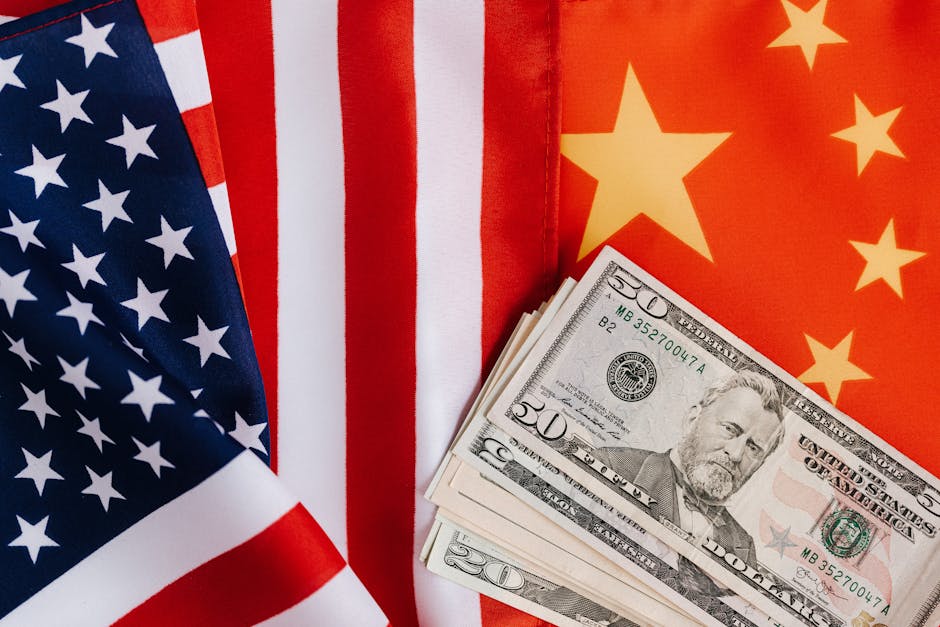US Falls Behind China in EV Investment Race
The global electric vehicle (EV) revolution is accelerating, but the United States risks falling further behind China as investment in its domestic EV sector declines. A recent report highlights a sharp drop in funding for American EV startups and manufacturing, raising concerns about the country’s ability to compete with China’s dominant position in the industry. With Beijing pouring billions into subsidies, infrastructure, and innovation, the gap between the two superpowers is widening—and the stakes couldn’t be higher for the future of clean energy and economic supremacy.
Investment Slump Threatens US EV Ambitions
Over the past year, venture capital and private investment in US-based EV companies have plummeted. High interest rates, economic uncertainty, and shifting political priorities have made investors wary of pumping money into the capital-intensive EV sector. Startups like Rivian and Lucid, once darlings of Wall Street, are now struggling with cash burn and production delays. Even traditional automakers like Ford and General Motors are scaling back ambitious EV targets due to softening demand and rising costs.
Meanwhile, China is surging ahead. The country accounted for nearly 60% of global EV sales in 2023, thanks to aggressive government support, a robust supply chain, and a thriving domestic market. Chinese EV giants like BYD, NIO, and XPeng are expanding rapidly into Europe, Southeast Asia, and Latin America, while US automakers remain largely confined to their home market.
Why China Holds the Upper Hand
China’s dominance isn’t accidental—it’s the result of decades of strategic planning. Beijing has heavily subsidized EV production, offered tax incentives to buyers, and built an unparalleled battery supply chain. The country controls over 80% of the world’s lithium-ion battery production and has secured key mineral resources in Africa and South America.
In contrast, the US has faced hurdles in passing cohesive EV policies. While the Biden administration’s Inflation Reduction Act (IRA) provided tax credits for EV buyers and domestic manufacturing, regulatory bottlenecks, labor shortages, and reliance on foreign supply chains have slowed progress. The recent slowdown in EV adoption in the US—attributed to high prices and inadequate charging infrastructure—has further dampened investor enthusiasm.
Geopolitical and Economic Implications
The widening EV gap isn’t just about cars—it’s about economic influence and national security. EVs are a cornerstone of the global energy transition, and whichever nation leads the industry will shape future trade dynamics. China’s control over critical minerals and battery technology gives it leverage over Western markets, raising concerns about supply chain vulnerabilities.
Additionally, as China exports affordable EVs worldwide, it’s gaining soft power in developing nations. Countries like India, Brazil, and Thailand are increasingly turning to Chinese EVs due to their competitive pricing and advanced technology. If the US fails to counter this trend, it could lose its foothold in key markets and cede technological leadership to Beijing.
Can the US Catch Up?
Experts argue that America needs a coordinated strategy to revive its EV ambitions. This includes:
- Boosting Domestic Manufacturing – Expanding battery gigafactories and securing mineral supply chains to reduce dependence on China.
- Accelerating Infrastructure Development – Rapidly deploying charging stations to alleviate range anxiety.
- Strengthening Policy Support – Extending subsidies and tax credits to incentivize both automakers and consumers.
- Encouraging Innovation – Funding research in next-gen battery tech like solid-state batteries to leapfrog Chinese competitors.
The clock is ticking. With China showing no signs of slowing down, the US must act decisively—or risk becoming a bystander in the defining industrial race of the 21st century.
What do you think? Should the US double down on EV investments, or is it too late to challenge China’s dominance? Share your views in the comments below.
— NextMinuteNews Team




